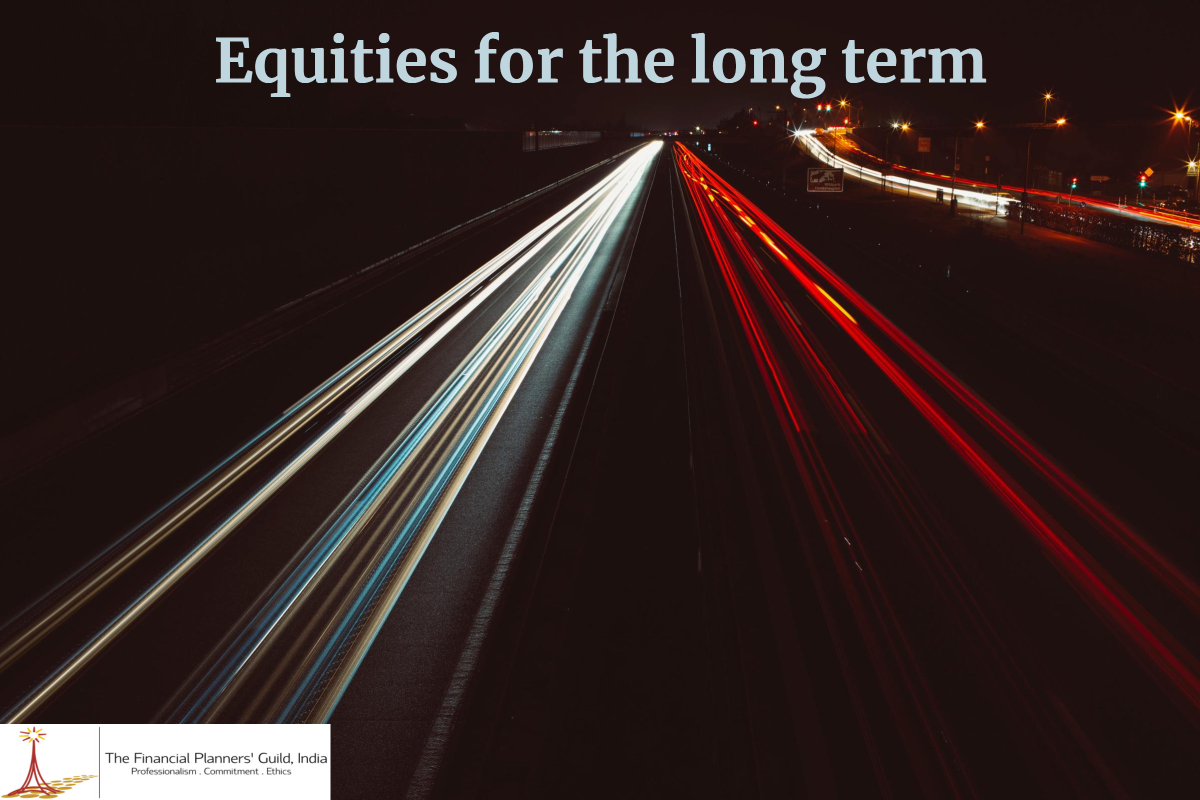We are the nation of fixed income investors. Most proportion of financial savings and investments of Indians are in fixed income avenues as dominated by bank deposits and various government small savings schemes like PPF and National Savings Certificates (NSC). But we should know that the scope of gains is sharply limited in fixed income instruments as compared to investing in equities and cannot beat inflation rate. However, being a relatively high inflation economy, still we are not ready to switch to equity more enthusiastically like we do in fixed income.

The primary reason is that this is actually a cyclical problem. Because inflation is high, fixed returns are also high. We get 8, 10, or even 12 per cent from different kinds of deposits. Ironically, these returns are low in real terms but the headline number is big. It creates an illusion, false impression, that you are earning a lot of money. In reality, getting 10 per cent when inflation is 9 per cent is no different from getting 5 per cent while inflation is 4 percent. Thus, paradoxically, higher inflation makes fixed income look more lucrative.
Understanding the effect of Inflation Rate
We understand that each year’s inflation occurs on top of the previous year’s inflation, it means that the effect is just like of compound interest. Consider a situation where you invest Rs1 lakh in a bank deposit which earns you 8 per cent a year. At the same time, the prices are also generally rising at the same rate of 8 percent a year. In such situation, your compounding returns will just about keep pace with inflation.
The actual amount will increase but what you can do with it would not. So, for example, over ten years your Rs1 lakh will become Rs2.16 lakh. However, at the same time, on an average the things you could buy for Rs1 lakh will also cost Rs2.16 lakh. In effect, you have not become any richer. The purchasing power of your Rs1 lakh is still Rs1 lakh despite keeping it in the bank deposits.
But inflation may not be so kind as to stay at the level of the interest you are earning, What if it’s more? And what if, this goes on for a very long time. Suppose, your returns are 8 per cent but inflation stays at 10 per cent and twenty years go by?
Your investment would grow to Rs4.66 lakh but things that used to cost Rs 1 lakh would now cost Rs6.72 lakh. Now, the purchasing power of your Rs1 lakh is just Rs69,000. Your investment has actually made you poorer.
This is not theoretical problem, it’s happening all the time to crores of Indians. Our tendency for using bank deposits and other fixed-return investments is the cause of this problem. The problem is especially severe for retired people who depend on long-term deposits for income.
Realistic definition of Long Term
There are a lot of anti-equity talks all around. People get angry while recommending equities for the long term. They could not wait for ten years. So, it is hard to convince too many investors that investing in an equity fund or starting an SIP is worthwhile in long duration. They typically complain that even SIP of four years in a typical fund has three or four per cent returns. Rationally, four year is not an adequate period of time for equity of SIP.
This is nicely illustrated by calculating how such an investment would work out had the SIP been started earlier. If a SIP had started six year ago instead of four, it would have had returns of 8.5 per cent p.a. Had it been started eight years ago, the returns would have been 11 per cent per annum and had it been started ten years ago, it would have been 16 per cent p.a. This last rate of return corresponds to a 440 per cent total growth over a decade. Twelve years would have brought returns of 22 per cent p.a. And, we think that at least, these are certainly not unreasonable such long periods of time. The superlative returns are generated for those investors who have sustained uninterrupted SIPs in equity fund for more than a decade and have switched the actual fund as their quality varies but have never stopped the monthly investment.
Hence, this apparently magical power of long-term compounding and cost averaging on a volatile asset has to be experienced to be believed. We now have the basic principles on which our argument is based. Equity has the potential to deliver growth which is over and above that the inflation rate is, while fixed income investments can deliver only the same rate of return aligned with the inflation rate.
Long run Investments for Growth
It is now time for saver to either continue the approach of just storing the money in deposits or he can make it work at the only reliable way of growing his savings at rate faster than that of inflation which is to invest it into equity or equity based investments. On an average, equity tends to grow at least at the same real rate at which the economy is growing.
If you track the markets every day, you will get many ups and downs. If you track it once in a few years, there will be fewer ups and downs. Returns from equity are not only high but also safe in the long run.
Thank you very much, Much needed valuable information
Thanks Vijay!